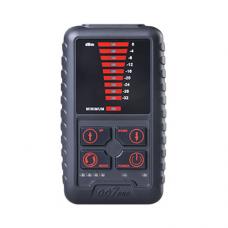In the industrial production process, a variety of instruments and meters are used in the monitoring and control of the generation process, which will generate a variety of signals: both faint small signals of millivolt level and tens of volts Large signals, even strong signals up to thousands of volts and hundreds of amperes; there are DC low-frequency signals, high-frequency or pulse spike signals; and these signals have to go through the process of mutual transmission and transmission, so how to ensure these signals In particular, the non-distortion of analog signals during transmission will become a problem that must be solved in system debugging.
Specifically, only when the analog signal transmission between the control device and the sensors and actuators distributed in the field is fault-free and undistorted, can the process control be safe and reliable. Especially low-power analog signals are affected by various external interference signals when they are transmitted in an industrial environment with high interference, and they need a reliable transmission channel. Daily work experience shows that due to equipment requirements, analog signals must be handled and transmitted carefully. The measurement and control parameters transmitted in the form of analog signals between the field and the control layer are often in a harsh industrial environment in the transmission project, which may cause distortion of these signals.

Main technical indicators of signal jammer:
1. Interference strength: also called isolation capability, withstand voltage strength or test withstand voltage, this is one of the main parameters to measure signal isolators. Unit: Volt@1 minute. It refers to the withstand voltage between input and output, input and power, and output and power. The larger the value, the better the withstand voltage, the stronger the isolation and the higher the filtering performance. Generally, this kind of pressure test is determined by the pressure test of one-time samples. During this test, a 50Hz power frequency voltage will be applied between the input and output, input and power supply, and output and power supply for several minutes, so as to determine that there will be no breakdown between the device and another potential surface. The voltage value.
At present, the isolation strength of signal isolators on the market is divided into several levels such as 2000V@1 minute, 1500V@1 minute, 1000V@1 minute, 500V@1 minute, etc.
2. Accuracy: This is a measure of the quality of a signal isolation transmitter. The industry generally can achieve ±0, 2% of the range
3. Temperatur e coefficient: it indicates the change in accuracy of instruments such as isolators when the ambient temperature changes. In most cases, it is expressed as a percentage (also expressed in a unit of 250ppm/K). For example, the temperature coefficient of the MDSC series signal isolator of the American Madshen brand is ±0, 015%/℃ (equivalent to 150ppm/K) .
4. Response time: characterize the response speed of the signal isolator.
5. Insulation resistance: a numerical characterization of the DC isolation between the internal power supply and the housing.
6. Load resistance: reflects the load capacity of the signal isolator.
